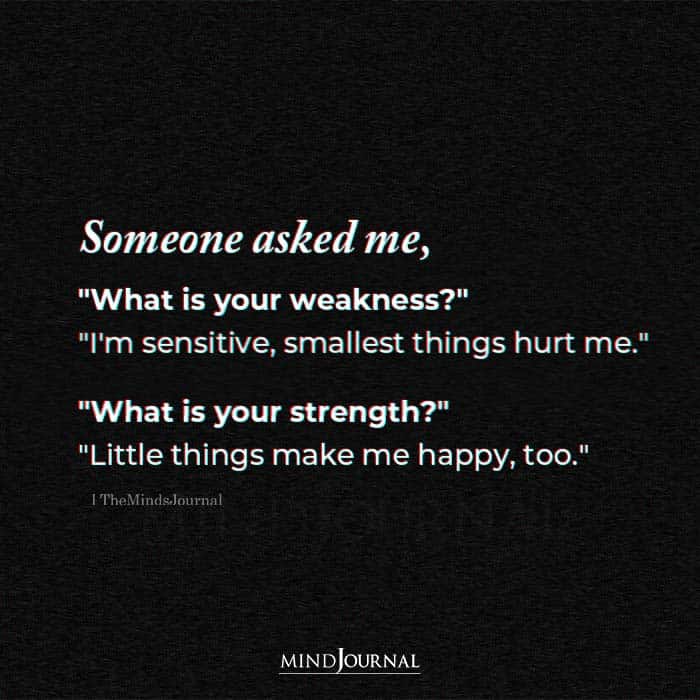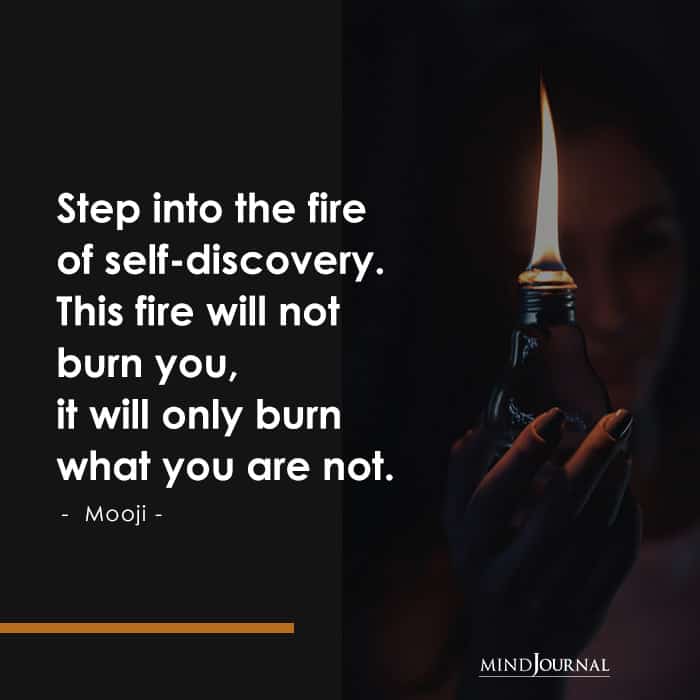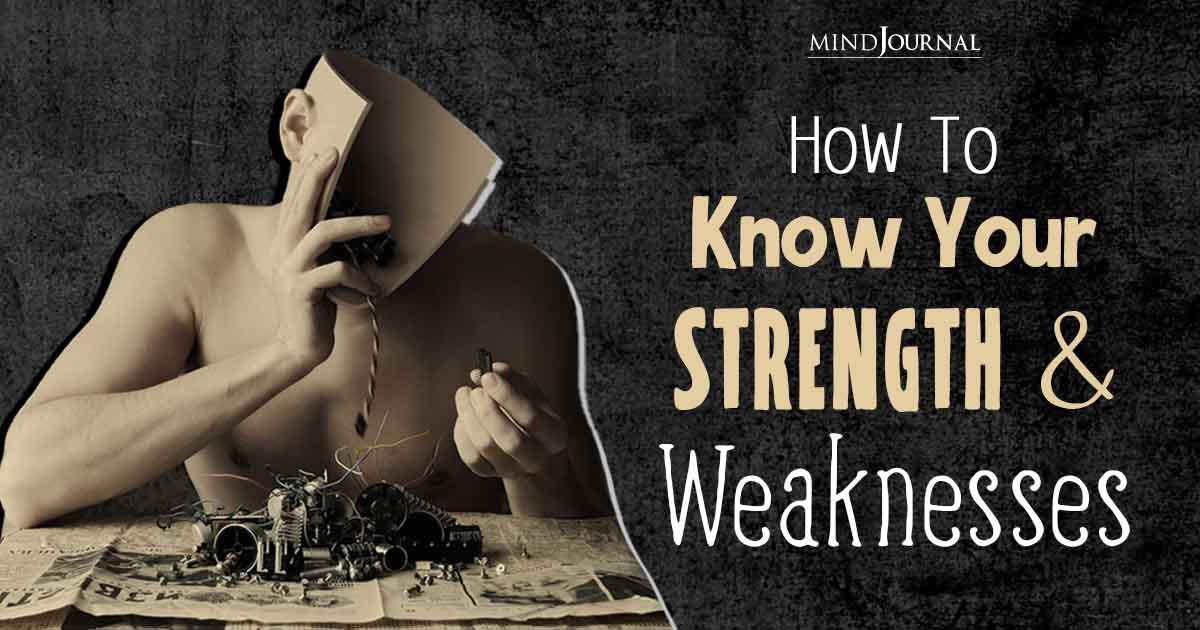Are you moving through life unaware of your true strengths and weaknesses? How to know your strength and weakness is the first step to capitalizing on your abilities while minimizing the impact of your limitations.
Uncovering your talents and trouble spots
Gaining insight into the skills that come naturally to you and the areas that require extra effort can be an eye-opening process of self-discovery. However, your skills and drawbacks are often hidden in plain sight, waiting to be uncovered.
If you want to excel at work and life, learning to how to know your strength and weakness is crucial as it will allow you to leverage your strengths and improve on your weaknesses.
But so often, our true talents and trouble spots remain hidden, even to ourselves. So how can we uncover our unseen talents and unrealized weaknesses?
Understanding how to know your strengths and weaknesses is an essential part of personal and professional growth. It is the foundation upon which you can build your life and achieve your goals.
Your strengths are the things you are naturally good at, while your weaknesses are areas that require improvement. Knowing your strengths and weaknesses can help you make better decisions, improve your relationships, and achieve success.
With awareness and action, you can start capitalizing on untapped strengths while developing strategies to mitigate weaknesses holding you back.
Related: 8 Ways To Cultivate Resilience During Tough Times
Why you need to know your strengths and weaknesses
As a human being, we all have our own unique set of strengths and weaknesses. Knowing what we are good at and what we need to work on is the key to personal and professional growth.
Identifying your strengths and weaknesses is important as it helps you to understand yourself better. When you understand your strengths, you can leverage them to achieve your goals and be successful.
When you understand your weaknesses, you can work on them and turn them into strengths. Moreover, knowing your strengths and weaknesses can help you make better decisions and avoid situations that are not in your best interest.

In this guide, I will show you how to know your strengths and weaknesses, assess their impact, and develop a plan to utilize your strengths and overcome your weaknesses. This will help you gain a better understanding of yourself and be empowered to achieve your goals.
How to know your strengths
The first step to figure out how to know your strength and weakness, is to know your potential and identify what you are really good at. Identifying your strengths can be challenging, but it is essential to do so if you want to be successful.
The following tips provide a framework to begin identifying parts of yourself you may not have seen clearly and find out what your true strengths are –
1. Identify areas of mastery
Strengths are often rooted in skills you’ve developed expertise in over time. Do you have knowledge or abilities that others comment on or come to you for help with? These hints at areas of mastery that could indicate strengths.
2. Ask for feedback
Has a boss or mentor ever commented that something “comes naturally” to you? Asking for feedback can be an excellent way to identify your strengths.
You can ask your friends, family members, colleagues, or even your boss for an honest appraisal of your skills. Ask them what they think you are good at and what you excel in.
At work, consider asking coworkers, subordinates, and supervisors for feedback on your performance and the areas where you excel or struggle. Be prepared for constructive criticism. Take note of their responses and see if there are any common themes.
Revisit positive feedback you’ve received for hints about your innate abilities or talents. Seeking feedback is an excellent way to learn how to know your strength and weakness.
3. Take a personality test
Use psychological assessments and personality tests as these can help you identify your strengths. There are many free online tests available, like Myers-Briggs, StrengthsFinder, and DISC that can help you understand your personality type and identify your strengths.
The Myers-Briggs Type Indicator (MBTI) is a popular personality test that can provide a structured way to learn how to know your strength and weakness.
These tools assess preferences, personality traits, motivators, and interests that correlate with specific strengths and weaknesses. While not definitive, the results can provide valuable insights into areas you may want to develop further. However, be wary of unvalidated tests that lack scientific backing.
Related: How Knowing Your Myers-Briggs Personality Type Can Help You Feel Less Stressed in Life
4. Review your past performance
What tasks do you accomplish most efficiently at work? What responsibilities do you gravitate towards? What kinds of projects or roles utilize your skills effectively? Job performance can reveal areas where you truly excel.
Your performance history contains a wealth of information on how to know your strength and weakness. Review achievements and accomplishments that made you proud, as well as failures and setbacks.
Look at tasks and responsibilities you maneuvered with relative ease versus those that required more effort. Consider the performance reviews you’ve received throughout your career, what skills employers praised, and weaknesses they identified.
5. Reflect on your accomplishments
Reflecting on your accomplishments can help you identify your strengths. Think about the things that you have achieved in your life and how you achieved them. Identify the skills and attributes that helped you achieve those things. These are likely to be your strengths.
6. Experiment and try new things
Put yourself in novel situations that utilize different skills to determine what comes naturally and what’s more difficult. Be willing to step out of your comfort zone and do things that you have never done before.
These may be something you always wanted to try but never could or something you never even imagined of doing. Trying new things is an exciting way of learning how to know your strengths and weaknesses.
7. Think of your hobbies, interests and passions
What do you do in your spare time that comes easily? Think about hobbies, subjects in school you excelled at, topics you love learning about, and tasks you find enjoyable at work. Ask yourself why that activity brings you joy and satisfaction.
Hobbies can provide clues about skills you genuinely enjoy utilizing. However, interests alone should not dictate your strengths – you must also assess how capable you are in those areas. But interests and passions can be good indicators of where your strengths lie.
8. Identify your superpowers
What can you do better, quicker or more skillfully than most people? These unique abilities, skills or talents represent your true “superpowers” – your innate strengths.
Are you good at fixing things? Is communication your superpower? Or are you really good at problem solving? Tap into your hidden superpower. This is how to know your strength and weakness.
9. Look for patterns over time
Your strengths won’t always reveal themselves in a single performance review or conversation. Look for repeated behaviors, challenges and successes over months or years. Consistent patterns offer better insights about what you are good or bad at.
10. Talk to mentors and coaches
People further along in their careers can offer wisdom based on experience. They can help you reflect on your performance in a broader context.
11. Reflect and be introspective
One of the best ways to answer “how to know your strength and weakness” is to reflect honestly on your performance and behavior. Think about tasks and situations that came easily to you versus those that caused difficulty. Ask yourself:
“What part of my job do I like doing most?”
“What do I struggle with & how do I overcome challenges?”
Look for patterns about your abilities.
12. Consider your values and motivators
Another excellent way to learn how to know your strength and weakness is to think about your values.Your values and motivators influence the strengths you discover within yourself.
Ask yourself what drives you and gives you a sense of purpose. Determine which tasks and goals align most closely with your values. Things you feel passionate about often play to your strengths.
The key is to look for evidence of skills you deploy with ease, expertise and enjoyment. Strengths are often abilities that come naturally, requiring little conscious effort, and unleash your most productive and engaged self. Hone in on those areas to truly identify and leverage your strengths.
Related: The Inner Dialogue: How to Use Inner Conversations to Your Advantage
How to know your weaknesses
Identifying your weaknesses can be difficult, but it is essential to do so if you want to improve. Here are some methods that can help you learn how to find your weakness –
1. Identify your energy drainers
Do you hate crowds or parties? Then socializing may not be your greatest strength. Note activities that zap your motivation and those that energize you. Energy drainers may point to weaknesses while activities that revive your energy are likely to indicate your strengths.
2. Seek support
Don’t try to identify your weaknesses and improve in isolation. Ask friends, family or coworkers to provide feedback and help hold you accountable or provide encouragement along the way.
Ask them what they think you need to work on or what your weaknesses are. Take note of their responses and see if there are any common themes. Revisit critical feedback for clues about recurring weaknesses. This is how to identify your strength and weakness.
3. Take a critical look at yourself
Taking a critical look at yourself can help you identify your weaknesses. Think about the things that you struggle with or the things that you avoid doing. These are likely to be your weaknesses. Introspection is a great way for learning how to know your weaknesses.
4. Ask yourself why things are difficult
When a task causes frustration, pause to figure out the root cause. Is it lack of knowledge, inadequate training, difficulty organizing or prioritizing? Pinpointing “why” can reveal the underlying weakness. This is a great strategy for learning how to find your weakness.
5. Identify tasks that cause anxiety or difficulty
What responsibilities or duties make you uneasy or worried? These likely tap into skills you lack confidence in. Keep an eye on tasks that result in setbacks, failure to meet deadlines, low-quality work, and negative feedback.
Reflect on why these situations caused difficulty and what skills you may have lacked. Over time, patterns will emerge around your weaknesses and areas for improvement.
6. Consider tasks you avoid
Are there certain jobs or activities you procrastinate on or try to pass off to others? These often indicate weaknesses you’d rather not confront. This can help you understand how to know your strength and weakness.
7. Consider multiple contexts
You likely have different strengths and weaknesses at work versus at home. You may excel at interacting with customers but struggle with organizing tasks. Think about different environments and it will help you figure out what challenges you face often.
8. Conduct a SWOT analysis
Conducting a SWOT analysis can help you learn how to know your weaknesses. SWOT stands for Strengths, Weaknesses, Opportunities, and Threats.
In a SWOT analysis, you list your strengths and weaknesses and then identify the opportunities and threats that exist in your life. This can help you identify areas where you need to improve.
9. Start small
Don’t overwhelm yourself with a long list of weaknesses to improve. Pick one high-impact skill and focus your energy there. Make incremental progress.
10. Evaluate results
Focus on the outcomes and results you produce to determine your strengths. What tasks do you complete efficiently and with high quality? What outcomes fall short of your desired standards?
Poor quality work, delays, errors and setbacks often point to weaknesses in underlying skills. Objective measures of your results and performance can reveal key clues on how to know your strength and weakness.
11. Accept that we all have both
No one is great at everything! We all have a unique mix of strengths and weaknesses. The key is focusing your energies in a productive way. Accepting your flaws is the simplest and most effective way for understanding how to know your weaknesses.
Related: The Bittersweet Art Of Acceptance
Analyze skills you struggle with, requiring extra effort, time and support. Weaknesses often cause negative emotions like anxiety, stress and frustration.
Identifying the root causes of difficulties and setbacks provides insight into the weaknesses holding you back. With awareness, you can then create a plan to improve those skills over time.

Now that you know how to identify your strength and weakness, let us understand the advantages of gaining such a deep level of self-awareness.
Benefits of understanding your strengths and weaknesses
Understanding how to identify your strength and weakness has many benefits. Here is a quick look at some of the advantages –
1. Improved self-awareness
Learning how to know your strength and weakness can help you become more self-aware.
2. Better decision-making
Knowing your strengths and weaknesses can help you make better decisions.
3. Positive and healthy relationships
Understanding how to know your strengths and weaknesses can help you improve your relationships with others.
Strategies for developing your strengths
Once you understand how to know your strength and weakness, developing your strengths become essential if you want to achieve success. Here are some strategies for developing your strengths:
1. Practice
Practice your strengths regularly to improve them. The more you practice, the better you will become.
2. Seek opportunities
Seek out opportunities to use your strengths. Look for projects or activities that allow you to use your strengths.
3. Find a mentor
Find a mentor who can help you develop your strengths. A mentor can provide guidance and feedback to help you improve.
Strategies for overcoming your weaknesses
Now that you know how to identify your strength and weakness and how to improve on your strengths, it’s time to focus on overcoming your weaknesses, if you want to thrive. Here are some strategies for overcoming your weaknesses:
1. Acknowledge your weaknesses
Acknowledge your weaknesses and accept that they exist. This is the first step in overcoming them.
2. Develop a plan
Develop a plan to overcome your weaknesses. Identify the steps you need to take to improve and set goals to track your progress.
3. Seek help
Seek help from others to overcome your weaknesses. Ask for feedback, seek out a mentor, or take a class to know how to find your weakness and to improve on the skills you lack.
Related: The 3 Methods Of Mastering The Mind
How to use your strengths to your advantage
Using your strengths to your advantage is essential if you want to be successful. Here are some strategies for using your strengths to your advantage:
1. Focus on your strengths
Don’t try to be good at everything. Focus your time and energy on areas that play to your strengths. Outsource, delegate or get help with other tasks.
2. Seek out opportunities to use your strengths
Look for projects, roles and responsibilities that allow you to utilize your strengths on a regular basis. This will boost your motivation, productivity and performance.
3. Highlight your strengths when marketing yourself
When applying for jobs, networking or seeking promotions, emphasize the strengths that make you uniquely valuable. Help employers see how your strengths match their needs.
4. Play to your natural talents
Approach tasks in the way that comes most naturally to you by leveraging your skills, expertise and knowledge. This will minimize effort and maximize results.
5. Build on your strengths
Continually develop your strengths further through practice, learning and growth opportunities. The more you hone your strengths the more valuable they become.
6. Build your brand
Build your brand around your strengths. This will help you stand out from others and attract opportunities that are in line with your strengths.
7. Collaborate with others
Collaborate with others who have complementary strengths. This can help you achieve more than you could on your own.
Related: 10 Ways To Become Unstoppable
How to improve your weaknesses
Knowing how to find your weakness is not enough, improving your weaknesses is also essential for success. Here are some strategies for improving your weaknesses:
1. Practice constantly
Work on your weaknesses regularly to improve them. The more you practice, the better you will become. Consistent, deliberate practice is essential for developing any skill. Build repetition into your routine.
2. Take a course
Take a course to improve on areas you lack the necessary skills and knowledge in order to develop the base needed to get better.
3. Define specific goals
Clearly articulate what you hope to achieve by improving the weakness. Set measurable and time-bound goals.
4. Break big goals into smaller steps
Create an action plan with manageable milestones to build momentum and motivation.
5. Learn from others
Find a mentor, take a class or access online resources to learn efficient techniques from more experienced people.
6. Be patient
Building new skills and changing habits takes time and effort. Be gentle with yourself and celebrate small wins along the way.
7. Avoid perfectionism
Focus on making progress, not achieving perfection. Constant improvement is the goal.
8. Try again when you fail
Mistakes and setbacks are opportunities to learn what works and what doesn’t. Get back up and try again.
Related: 15 New Skills To Learn For Rapid Self-Improvement
Takeaway

Understanding how to know your strength and weakness is imperative for anyone who strives for professional and personal success and growth.
By identifying your strengths and weaknesses, and developing a plan to utilize your strengths and overcome your weaknesses, you can become empowered to achieve your goals.
Remember to practice self-care, set goals, and collaborate with others to achieve success. With this detailed guide, you now have the tools and resources you need to understand and empower yourself.
Go forth and prosper.










Leave a Reply